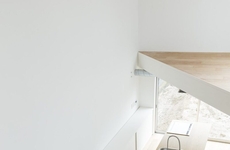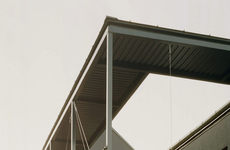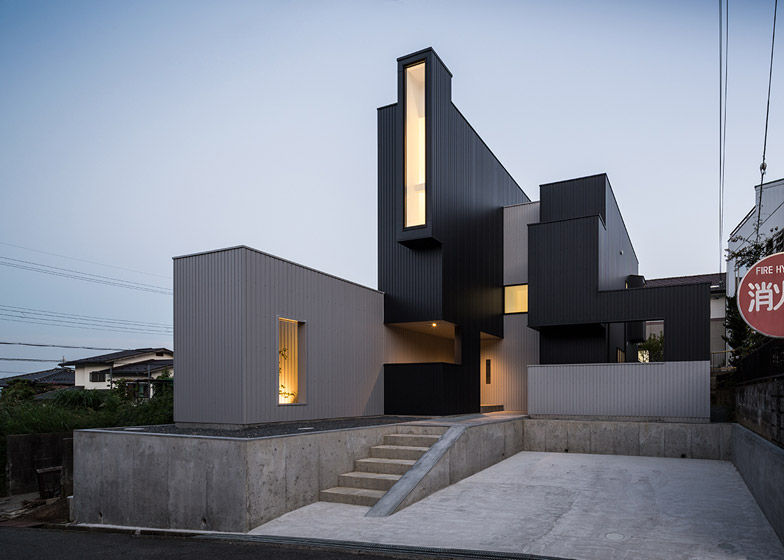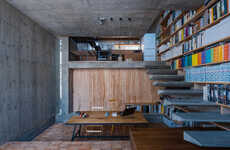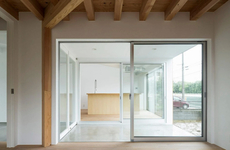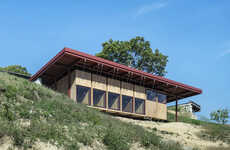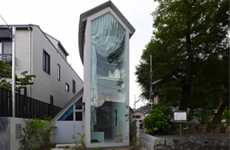
The Scape House Features Differently Sized Windows
Vasiliki Marapas — October 8, 2014 — Art & Design
References: form-kimura & dezeen
Japanese architect Kouichi Kimura, of FORM studio, designed the 'Scape House,' an experimental residence comprised of several cubic volumes.
The design initiative for this home called for versatile spaces. Kimura created spaces that could fully appreciate the view, while simultaneously retaining the homeowner's privacy. To differentiate the spaces, Kimura forwent the typical floor-to-ceiling glazing in favor of a series of large and small windows. This decision effectively produces a "hierarchy of views," as well as a range of interior lighting conditions.
The windows act as a "frame" for the surrounding landscape; the size and position of each affects the way that the view is consumed. Inside, the windows feature built-in furniture, such as shelving and seating, making them a staple piece inside and out.
The design initiative for this home called for versatile spaces. Kimura created spaces that could fully appreciate the view, while simultaneously retaining the homeowner's privacy. To differentiate the spaces, Kimura forwent the typical floor-to-ceiling glazing in favor of a series of large and small windows. This decision effectively produces a "hierarchy of views," as well as a range of interior lighting conditions.
The windows act as a "frame" for the surrounding landscape; the size and position of each affects the way that the view is consumed. Inside, the windows feature built-in furniture, such as shelving and seating, making them a staple piece inside and out.
Trend Themes
1. Versatile Spaces - Designing spaces that can adapt to various needs and functions, creating opportunities for innovative and flexible living environments.
2. Hierarchy of Views - Creating a visual hierarchy through the strategic placement and sizing of windows, offering unique perspectives and enhancing the overall experience of the space.
3. Integration of Built-in Furniture - Incorporating functional furniture elements within windows, maximizing space utilization and blurring the line between indoor and outdoor living.
Industry Implications
1. Architecture and Interior Design - Exploring new approaches to spatial design and the integration of furniture elements within windows, revolutionizing residential and commercial spaces.
2. Construction and Real Estate - Investigating innovative concepts for versatile spaces and windows, offering unique selling points and attracting discerning homeowners and tenants.
3. Home Furnishings and Decor - Creating opportunities for designing functional and aesthetic furniture pieces that can be integrated within windows, adding value to interior and exterior spaces.
2
Score
Popularity
Activity
Freshness




